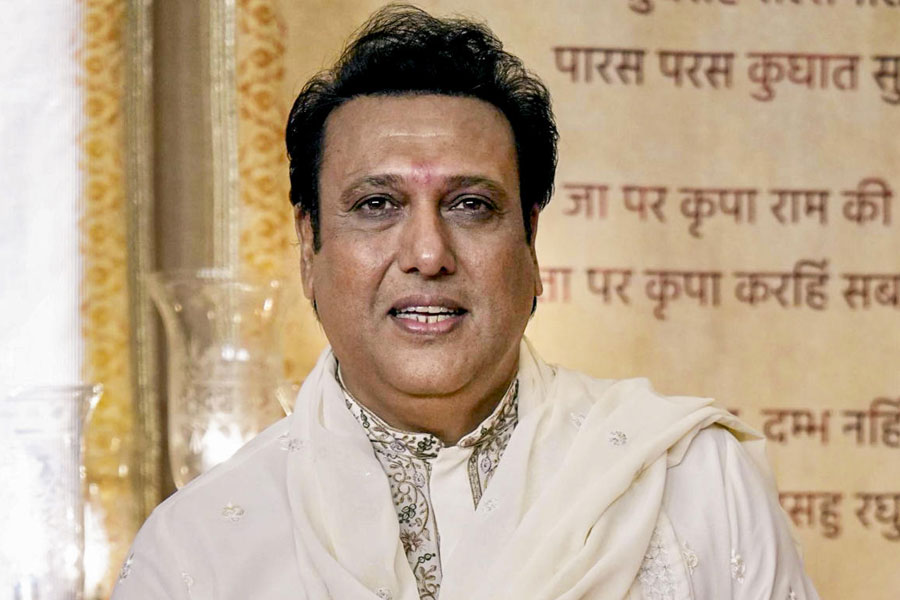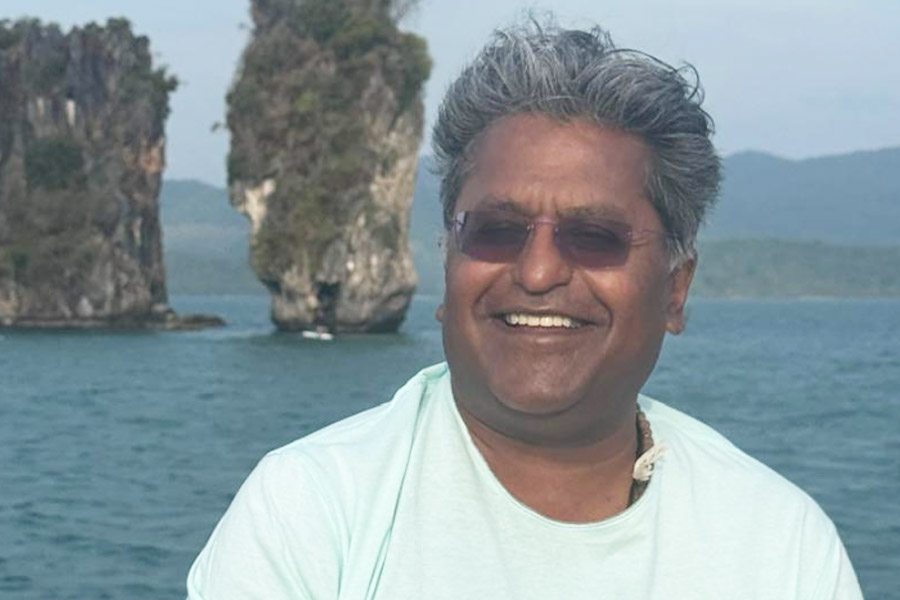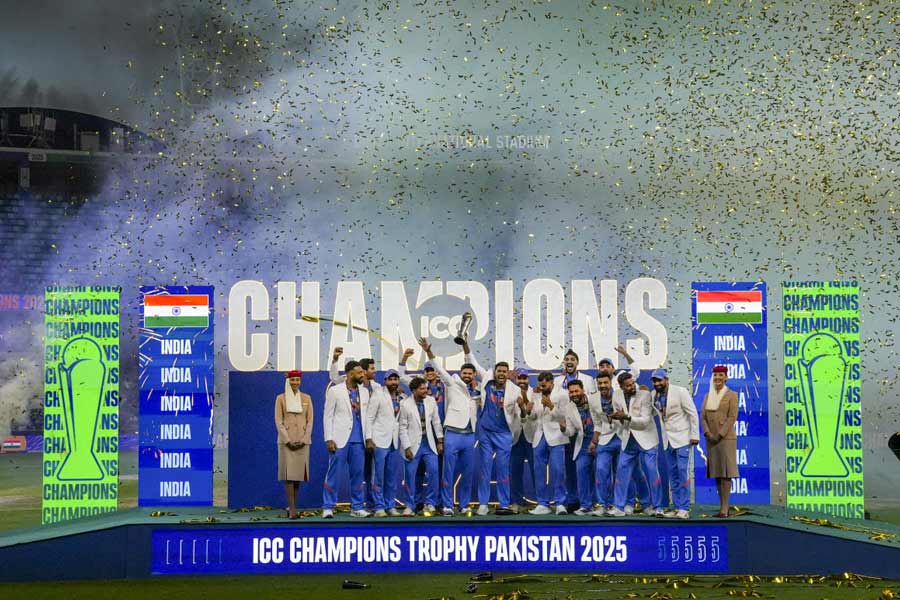A theory is doing the rounds in Thiruvananthapuram’s Left circles on why the Kerala governor, Arif Mohammed Khan, has accelerated his bombardment of the Left Democratic Front government. When he was West Bengal’s governor, Jagdeep Dhankhar succeeded where the state BJP failed — to take on the chief minister, Mamata Banerjee. Dhankhar was duly recognised for his services by the Bharatiya Janata Party and made the vice-president of India later. Kerala’s BJP is in the same predicament, failing miserably to get the Pinarayi Vijayan government to the mat. Khan is trying to emerge as the answer and he, too, is likely to be rewarded duly.
October 17. Khan tweeted, “The CM and Council of Ministers have every right to advise [the] Governor. But statements of individual ministers that lower the dignity of the office of the Governor, can invite action including withdrawal of pleasure.”
October 19. As the chancellor of the state’s universities, Khan removed 15 members of the University of Kerala’s 91-member senate.
October 22. Khan said at a public meeting that he would convey to the chief minister his “displeasure” against the state law minister and finance minister for allegedly disrespecting the office of the governor.
October 23. Khan ordered nine vice-chancellors of Kerala’s different universities to resign before 11.30 am the next day. Two days later, Khan ordered two more VCs to tender their resignation.
October 26. Khan wrote to Vijayan, informing him that K.N. Balagopal, the state finance minister, no more enjoys his “pleasure” and asked him to take constitutionally appropriate action. Vijayan immediately wrote back to the governor that as chief minister, he has complete trust in the minister. The ruling LDF has now announced an agitation against the governor starting with a protest march to the Raj Bhavan in Thiruvananthapuram on November 15. The Communist Party of India (Marxist)’s central committee has come out strongly against Khan, burying the memories of their mutual friendship during the time of V.P. Singh’s government.
These unprecedented salvos are the latest in the nearly one-yearlong war between Khan and the LDF government. The current round was triggered by the government’s moves to check the governor’s powers as the chancellor of universities through an amendment to the state university law. This followed the open clashes between Khan and the government over various matters related to the running of the universities, including some controversial appointments of the relatives of CPI(M) leaders. The latest altercations began with Khan’s attempts to block the government’s plan to appoint a person of its choice as the VC of the UoK. Departing from convention, Khan constituted a three-member search committee to find the new VC with his own nominee as the convenor. With the second member nominated by the University Grants Commission, the lone nominee of the state government was bound to get overruled. This led to the state nominee declining to be part of the committee. UoK’s LDF-dominated Senate members abstained from a scheduled meeting called under the chancellor’s instruction to appoint a new member to the search committee. The abstention caused the meeting to be cancelled for lack of quorum. An enraged governor immediately withdrew 15 of his nominees from the senate.
The next day, in an unrelated development, the Supreme Court set aside the appointment of M.S. Rajasree as the VC of Kerala’s A.P.J. Abdul Kalam Technological University, citing a violation of UGC regulations. The apex court observed that Rajasree’s appointment as the only person nominated by a search committee violated the UGC’s stipulation that mandated a panel of three to five names. This presented an excellent opportunity for Khan. He ordered the VCs of nine universities in the state to tender resignations the next day before 11.30 am as they were all appointed as singular names nominated by the respective search committees. But in a special sitting on the next day, the Kerala High Court granted interim relief to the VCs, allowing them to continue in their positions till a final order was passed by the governor based on the reply, by November 3, to show-cause notices issued to them.
These incidents had already boiled over to the political arena, with many CPI(M) ministers coming out against the governor. The law minister, P. Rajeev, said no law says that the governor should be mandatorily made the chancellor. Rajeev also took exception to Khan’s reported statement that Kerala has replaced Punjab as the drug capital.
This provoked a counter-attack from Khan: “The ignorant Law Minister says that he was going to review the governor’s actions. The Ministers cannot review my actions as I appoint them, and I will review their actions. Kerala has ignorant people ruling the State even as the brilliant ones are leaving the State for foreign countries.”
At another public meeting, the finance minister, Balagopal said, without mentioning Khan, that people who were coming from places like Uttar Pradesh would not understand the democratic ways universities are run in Kerala. He cited a specific incident when five students were shot dead by the security guards of the VC of Banaras Hindu University, something that was unimaginable in Kerala.
Khan took serious umbrage and shot off a letter to the chief minister saying he had ceased “to enjoy the pleasure” in Balagopal who had violated the oath as minister by invoking ‘regionalist’ sentiments. Vijayan immediately responded by reaffirming his constitutional authority over the appointment and continuation of members of his council of ministers.
A hot debate has now ensued in Kerala over the authority of the governor. Many say that the ambiguity over the governor’s powers vis-à-vis the state government has been an issue from the days of the framing of the Constitution, leaving it to the realm of interpretation. According to Article 163 (2), the decision of the governor in his discretion shall be final and its validity shall not be called into question. However, Article 164 says, “The Chief Minister shall be appointed by the Governor and the other Ministers shall be appointed by the Governor on the advice of the Chief Minister, and the Ministers shall hold office during the pleasure of the Governor.” Legal experts point out that the governor’s pleasure cannot be exercised as his personal pleasure but only within constitutionally granted limits. Right from B.R. Ambedkar onwards, various courts have repeatedly underscored in cases like Shamsher Singh & Anr vs the State of Punjab (1974) that the governor does not enjoy greater powers vis-à-vis the state government than the president visà-vis the council of ministers at the Centre. Khan’s charge that ministers didn’t respect the governor hardly has any constitutional validity for his ‘withdrawing pleasure’ against them.
This battle between the governor on the one side and VCs and LDF leaders on the other has been going on for about a year. The Congress has been caught in a dilemma, unable to support either camp, with the BJP vociferously defending Khan. In an unprecedented incident in September, at a media conference held at the Raj Bhavan, Khan lambasted Vijayan, accusing him of acts of nepotism and also protecting those who tried to assault him. Vijayan, who had refrained from taking on Khan until then, hit back, charging Khan with making the Raj Bhavan a centre of political conspiracy for the BJP.
The war appears to be getting worse.
M.G. Radhakrishnan, a senior journalist based in Thiruvananthapuram, has worked with various print and electronic media organisations











